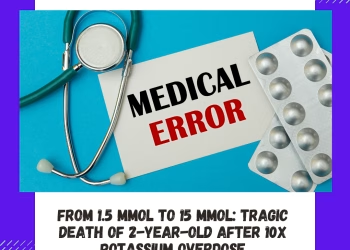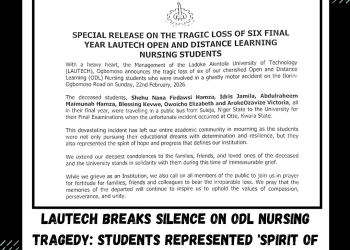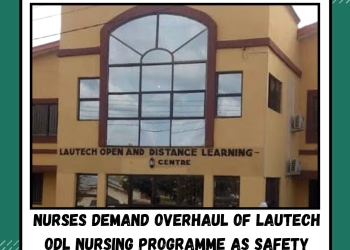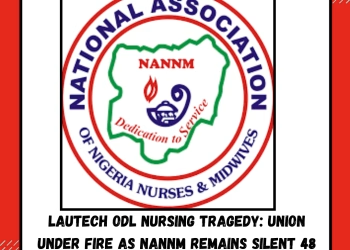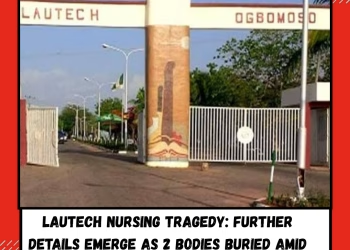UK Immigration Rules 2025: Impact on African Nurses, Doctors, and Care Workers
LAGOS, Nigeria, May 15, 2025 – The UK government’s newly released White Paper, Restoring Control over the Immigration System (May 2025, CP 1326), brings sweeping reforms designed to manage and reduce net migration, thereby reshaping the immigration framework.
For African healthcare professionals—including nurses, doctors, and care workers—this policy represents a critical juncture that will directly influence their opportunities to work in the UK’s National Health Service (NHS) and the broader social care sector. Given that African nations have long been vital suppliers of healthcare talent to the UK, these changes carry profound implications for both the professionals seeking opportunities and the healthcare systems of their home countries.
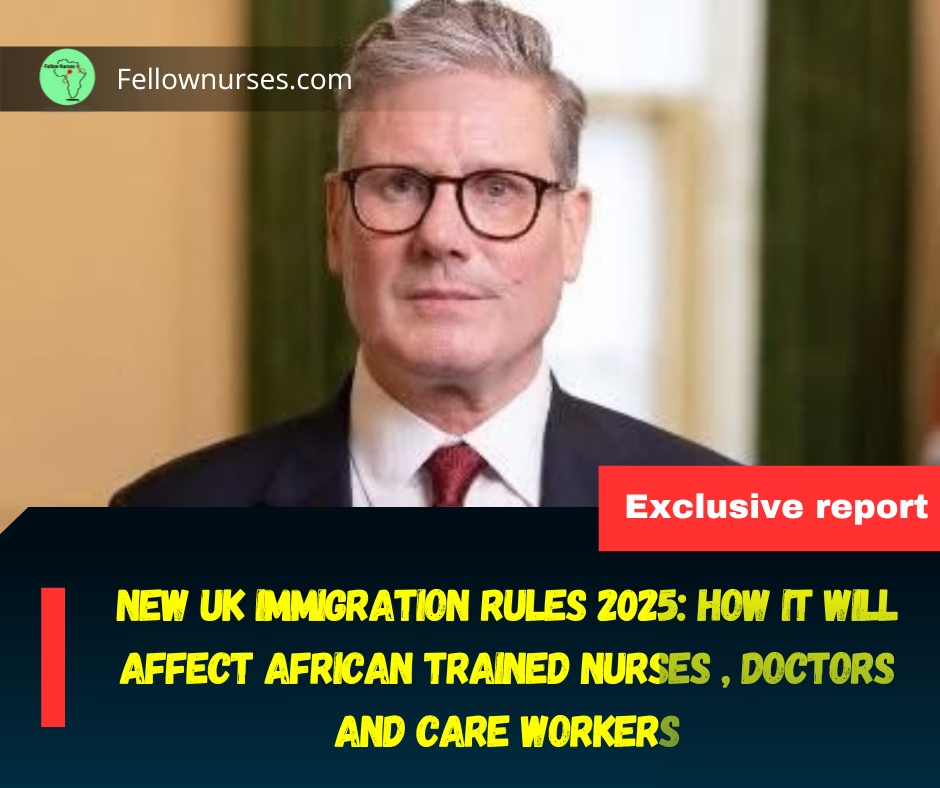
This report provides an in-depth analysis of the White Paper’s key provisions, specifically focusing on their impact on African nurses, doctors, and care workers. Additionally, we explore the broader consequences these policies could have on Africa’s healthcare systems and workforce.
Download the full White Paper here: Restoring Control over the Immigration System
A New Era of Immigration Control
The White Paper, presented by the Home Secretary and endorsed by the Prime Minister, responds to a surge in net migration, which reached a record high of 906,000 in the year ending June 2023—four times the number seen in 2019. This increase was attributed to post-Brexit policy decisions that reduced skill and salary thresholds for work visas, especially in healthcare and social care sectors. The UK government now aims to restore “order, control, and fairness” by emphasizing higher-skilled migration, reducing reliance on overseas workers, and imposing stricter rules.
Key immigration reforms include:
- Raising the Skilled Worker visa threshold from RQF 3 (A-level equivalent) to RQF 6 (degree-level), excluding lower-skilled roles.
- Phasing out the social care visa route by 2028, with provisions for existing workers to extend their visas.
- Introducing a Temporary Shortage List for critical occupations below RQF 6, which will require approval from the Migration Advisory Committee (MAC).
- Increasing English language requirements for main applicants (from CEFR B1 to B2) and introducing A1-level requirements for dependents.
- Extending the settlement qualifying period to 10 years, though a points-based system may allow faster routes for some.
These measures are designed to reduce net migration, boost domestic training, and curb exploitation in sectors like social care. However, they present significant challenges for African healthcare professionals, who have long filled crucial gaps in the NHS and social care.
Impact on African Nurses and Doctors
For African nurses and doctors, particularly from countries like Nigeria, Kenya, Ghana, and Zimbabwe, the UK’s NHS has long been a destination for professional development and employment. In 2023 alone, 105,000 Health and Care Worker visas were issued to main applicants, many from African nations. The shift in the White Paper towards RQF 6-level roles could preserve opportunities for African professionals, as many nursing and medical qualifications meet degree-level requirements. However, the introduction of higher salary thresholds and increased Immigration Skills Charges (which have risen 32% since 2017) may discourage NHS employers from sponsoring African workers, particularly for less lucrative roles.
Moreover, the new English proficiency requirement—elevating the standard from CEFR B1 to B2 for Skilled Workers—could create additional barriers, especially for those who may not meet this higher level. The introduction of A1-level English proficiency for dependents, a change from previous exemptions, may also complicate family relocations, which are often an essential aspect of the decision-making process for African professionals.
Dr. Amina Okeke, a Nigerian doctor working in London, shared her thoughts:
“The new rules seem to value our skills but make it harder to bring our families or afford the visa costs. For many African doctors, this could mean rethinking plans to work in the UK.”
Social Care: A Sector Under Siege
The most drastic measure in the White Paper is the closure of the social care visa route for new applicants by 2028. This decision, driven by concerns over exploitation and poor wages, significantly impacts African care workers, many of whom view the UK as a pathway to better economic stability. In 2023, 108,000 care worker visas were issued, with a large proportion of applicants coming from African countries, particularly Nigeria and Zimbabwe.
By 2028, new care worker visa applications will cease, though existing workers may extend visas or switch employers under transitional provisions. For many African care workers, the closure of this route signals the end of a vital opportunity. Although the Temporary Shortage List might offer a potential lifeline, it will only include roles deemed critical to the UK’s industrial strategy, and with many care roles classified below RQF 6, their inclusion is uncertain.
Mercy Adebayo, a Nigerian care worker in Manchester, expressed her concerns:
“I came to the UK to support my family back home. If the visa route closes, what happens to us? The care sector needs us, but these rules make it feel like we’re not wanted.”
Consequences for Africa’s Healthcare Systems
The UK’s reliance on African healthcare professionals exacerbates the ongoing brain drain from African nations, which are already facing critical shortages in medical staff. According to the World Health Organization, Africa is projected to experience a 4.6 million health worker deficit by 2030. While the White Paper allows highly skilled workers to continue contributing to the UK’s healthcare system, the closure of the social care visa route could drive African professionals to seek opportunities in countries like Canada or Australia, further straining Africa’s healthcare systems.
Moreover, the higher Immigration Skills Charge and new workforce strategy requirements may discourage ethical recruitment practices, especially from countries that already face healthcare workforce challenges. Although the White Paper acknowledges the need for responsible recruitment, it offers no concrete solutions beyond collaboration with the MAC and Skills England.
Critical Analysis: Balancing Control and Compassion
While the White Paper’s goal to reduce net migration and prioritize domestic training is understandable, its one-size-fits-all approach risks undermining the very healthcare system that relies heavily on African talent. The closure of the social care visa route, while intended to curb exploitation, could worsen staffing crises in care homes and hospitals already struggling with vacancies.
The focus on higher-skilled migration ignores the crucial roles played by care workers, whose jobs, though essential, are often undervalued. The new English language requirements may also exclude competent professionals from non-English-speaking African countries, such as those in Francophone regions like Cameroon. Furthermore, the extension of the settlement qualifying period to 10 years may deter long-term commitment from African workers, who may seek faster routes to stability in other countries.
Looking Ahead: Opportunities and Challenges
The White Paper creates pathways for African nurses and doctors with advanced qualifications to continue working in the UK. However, care workers face an uncertain future, with limited opportunities after 2028. African governments and professional bodies must actively advocate for fair treatment and explore alternative migration markets to mitigate the adverse effects of these changes.
The UK’s commitment to digital borders (e.g., eVisas) and stricter enforcement of visa conditions will increase scrutiny on African workers. Nurses and doctors must ensure compliance with visa requirements, while care workers on transitional visas should take advantage of in-country switching opportunities before the 2028 deadline.
Conclusion: A Call for Balance
The Restoring Control over the Immigration System White Paper represents a major shift in UK immigration policy, prioritizing control and domestic investment. While African nurses, doctors, and care workers may still find opportunities in the UK, challenges abound—especially for care workers. These changes underscore the need for balance between controlling migration and ensuring the ethical treatment of African healthcare professionals, who continue to play a vital role in global healthcare systems.
Fellow Nurses Africa urges African healthcare professionals to stay informed, engage with professional networks, and advocate for policies that reflect their invaluable contributions to the healthcare sector. As the UK navigates this new chapter, it must prioritize global responsibility, ensuring that policies are balanced and compassionate.
Download the full White Paper here: Restoring Control over the Immigration System
Join Our WhatsApp Community for Nurses!Are you a nurse looking for job opportunities, career growth, or expert guidance?Connect with fellow professionals, get insider updates, and access valuable resources — all in one place!👉 Click here to join our WhatsApp communityLet’s grow, learn, and succeed together!


